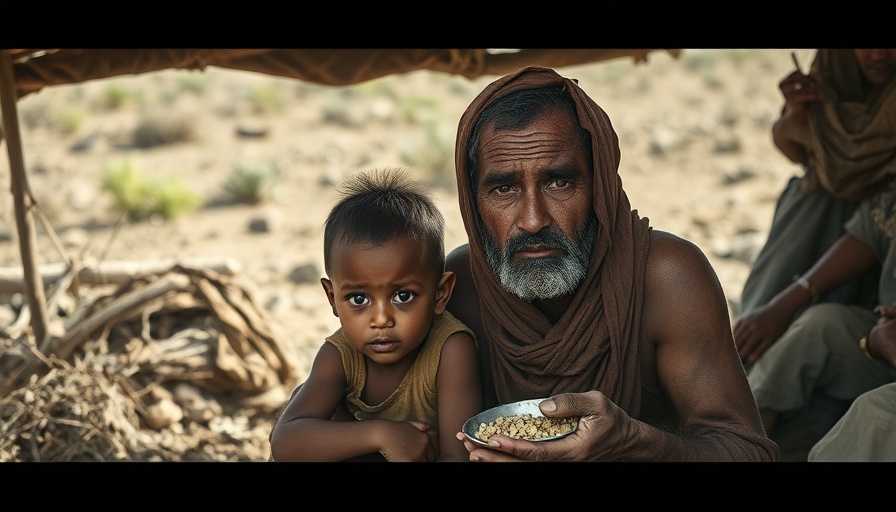
The Dire Consequences of Famine in Gaza: An In-Depth Analysis
In recent weeks, Gaza has been thrust into the international spotlight as the United Nations declared famine conditions across the region, leaving over half a million people in a state of extreme hunger. This man-made disaster has been described by UN Secretary-General António Guterres as 'a moral indictment – and a failure of humanity itself.' As humanitarian organizations like Doctors Without Borders grapple with soaring cases of malnutrition, the implications of this crisis extend far beyond the immediate physical toll on the population.
The Human Toll: Understanding Malnutrition Stats
The situation is devastating. Caroline Willemen, a project coordinator for Doctors Without Borders, reports that their malnutrition program has seen over 1,650 patients, a five-fold increase since May. This alarming rise consists of young children and pregnant or lactating women—groups particularly vulnerable to nutrition shortfalls. With malnutrition rates dramatically increasing, added pressure is placed on caregivers and healthcare systems that are already stretched thin. Willemen mentions, 'We do not do in-patient treatment of the most severe patients, but we do see patients that we desperately have to refer.' This scenario portrays the escalating crisis where, even with some supplies now available, the overarching need for consistent and safe access to food remains critical.
Barriers to Aid: Enormous Obstacles in a Dangerous Journey
While supply lines face increased scrutiny from international organizations, the local market dynamics present a formidable challenge. Food access is dramatically affected by rising prices and limited purchasing power, leaving many families without adequate resources. Willemen notes, 'People who do not have access to cash, which is many people, will still not be able to get food.' This financial barrier is compounded by the ongoing conflict, where even the act of seeking food from aid trucks poses risks of violence and injury. These conditions severely undermine the attempts to alleviate famine in Gaza, creating a cycle of desperation that fosters both physical deprivation and psychological trauma.
Climate Change's Role: The Environmental Impact
The interplay between these humanitarian issues and the overarching challenge of climate change cannot be ignored. The relentless heat exacerbates the dire living situation, straining water resources and agricultural production. As heatwaves increase in frequency and intensity due to climate change, areas like Gaza are witnessing deteriorating living conditions that amplify the suffering. A sustainable response to this crisis necessitates not just immediate humanitarian aid, but also long-term strategies focusing on environmental conservation and sustainable agriculture.
Steps Toward a Sustainable Future: Bridging the Gap
In light of these challenges, there is an urgent need for comprehensive sustainable development solutions. As communities begin to rise from the ashes of conflict and poverty, emphasis on sustainable practices such as community gardens and the promotion of organic food sources can help mitigate the hunger crisis. Through the implementation of eco-friendly agricultural practices, it is possible to both restore the environment and secure food supplies—promoting health and sustainability in tandem. By transforming into resilient and sustainable agricultural practices, regions like Gaza may pave the way towards food security and reduced hunger.
Taking Action: The Call for Global Responsibility
As this crisis unfolds, the call to action for global citizens and leaders grows louder. Addressing the dire circumstances in Gaza goes beyond donating supplies; it extends to fostering understanding of sustainable issues affecting vulnerable communities worldwide. Activists, environmentalists, and everyday citizens are vital in urging governments to prioritize sustainable policies and humanitarian efforts that protect human dignity and ensure survival.
INSIGHT: As global citizens, we are called upon to support sustainable solutions that not only address immediate humanitarian needs but also fight against the systemic issues that fuel such crises. Supporting humanitarian organizations while advocating for climate action can lead to a more sustainable future where situations like the one in Gaza become a thing of the past.
 Add Row
Add Row  Add
Add 



Write A Comment